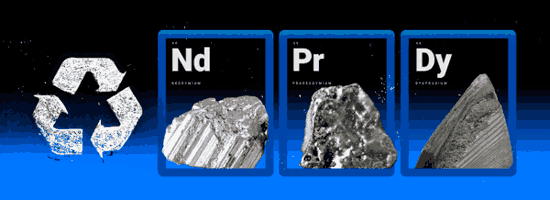Hard Disk Drives (HDDs) are vital components of cloud data center infrastructure, integrating advanced material science, mechanical engineering, and physics. These devices utilize rare earth elements (REEs) such as Neodymium (Nd), Praseodymium (Pr), and Dysprosium (Dy) for their magnetic properties, crucial in data reading and writing processes. Traditional recycling methods, however, fail to recover significant amounts of these important materials, exacerbating waste issues.
Pioneering Recycling Efforts
A multi-party pilot initiative led by Western Digital Corp, in partnership with Microsoft, Critical Materials Recycling, Inc. (CMR), and PedalPoint Recycling, marks a significant advancement in recycling practices. The program successfully transformed approximately 50,000 pounds of decommissioned HDDs and related materials into high-value resources while minimizing environmental impact. An innovative sorting ecosystem was developed utilizing an eco-friendly, non-acidic process that not only retrieves essential rare earth elements but also recycles metals such as gold, copper, aluminum, and steel, redirecting them back into the U.S. supply chain.
Process and Outcomes
The HDDs used at Microsoft data centers underwent shredding and sorting at PedalPoint Recycling before entering CMR’s facilities for acid-free dissolution. This method efficiently extracts rare earth oxides, returning them to the U.S. market. This advanced recycling approach has not only been adopted within the tech industry but has also inspired other sectors to reclaim rare earths from their hardware, further enriching the domestic supply pool.
Materials collected from several Microsoft centers in the U.S. demonstrated exceptional recovery rates, achieving nearly 90% yield of elemental and rare earth materials due to advanced chemical methods and thorough component segregation. This initiative has repurposed approximately 80% by mass of the initial materials, transforming potential waste into valuable resources.
Environmental Impact and Future Implications
Based on Life Cycle Analysis, this recycling initiative estimates a remarkable 95% reduction in greenhouse gas emissions compared to conventional mining practices. By localizing the production of Rare Earth Oxides (REOs), the program decreases transportation-related emissions and strengthens the U.S. supply chain, reducing reliance on imported materials.
The potential ripple effects are substantial, enabling access to sustainably sourced, high-purity materials that can diminish the ecological footprint of both data centers and dependent industries.
Stakeholder Perspectives
Jackie Jung, VP of global operations strategy and corporate sustainability at Western Digital, emphasized the initiative’s importance, stating it establishes new standards for end-of-life HDD management. “Innovation must extend beyond a device’s lifecycle,” she remarked, underlining the aim to transform retired storage into essential resources for future technologies while ensuring environmental protection.
Chuck Graham, corporate VP at Microsoft, acknowledged the pilot’s demonstration of feasible, sustainable solutions for end-of-life HDD management, highlighting the importance of a circular supply chain in the tech sector.
Technological Innovation
The acid-free dissolution recycling (ADR) technology, initially developed at the Critical Materials Innovation (CMI) Hub, plays a key role in this project. Tom Lograsso, director of CMI, noted the rapid scaling of ADR technology from lab to demonstration scale within eight years, highlighting its relevance amidst the growing demand for HDD data storage driven by AI advancements.
Brian Diesselhorst, CEO of PedalPoint Recycling, spoke positively about the collaborative nature of the project, indicating that partnerships can significantly enhance recycling efforts.

